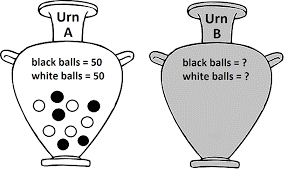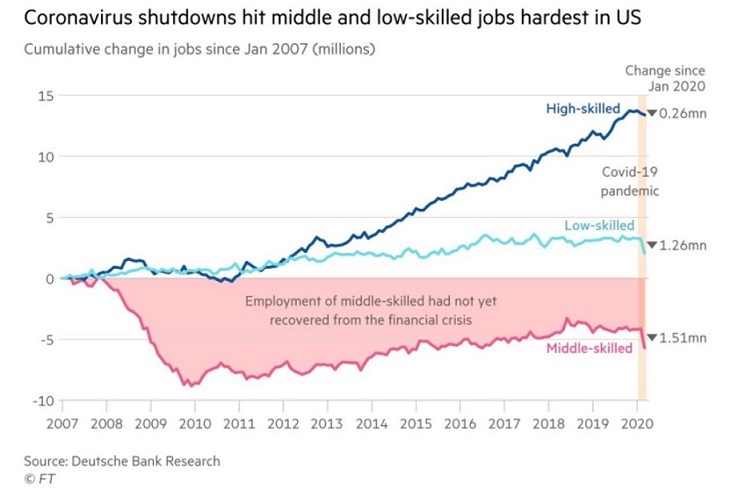Uncertainty is a word that is overused currently. There is uncertainty about the impact of the virus, about the cure and its timing and as importantly there is uncertainty about what kind of recovery we might see in our lives and the economy!!
Uncertainty is not always bad. There is excitement in life because there is uncertainty. What bigger uncertainty is there than death and imagine how boring our life would be were we to know the exact date and time of our death!! Imagine a holiday to a new foreign destination and the excitement that goes into planning one. Such uncertainties bring innovation, energy and rush. The same uncertainty works differently on bad days. Uncertainty about where our next meal will come from can be crippling. Similarly, right now, as we are all facing a pandemic, it is breeding hysteria and panic. And people do crazy things during such phases of uncertainty.
Decisions getting stalled are one of the biggest threats to our lives world over. Let’s look at this with an example…The Ellsberg Paradox.

Imagine you are in a room with two large urns that are covered. You are told that the Urn on the left contains 50 black balls and 50 white balls. I also tell you that the urn on your right has 100 balls (only black and white), without giving you the exact distribution between the black and white balls.
Source: Finshots
And then I ask you to draw a black marble in one pick without looking into the urns. If you pick a black marble, you win Rs. 500. If you don’t, you get nothing.
So which urn would you pick from, to maximize your chances of winning?
Well, if you picked the urn on the left. Congratulations, you got it spot on. And most people would agree with you. Because it just feels so right, doesn’t it?
But here’s the kicker. Even if you’d picked the urn on the right, that would work equally as well. Because believe it or not, the likelihood of you picking a black ball from either urn is exactly the same i.e. 50% or 1/2
The underlying premise here is that people have a strong distaste for uncertainty and they’d much rather live in an unambiguous world, even when it doesn’t affect the eventual outcome. And this affects many decisions we take. Companies will postpone or cancel their investment plans and hiring decisions while individuals may also shirk from taking big decisions. Uncertainties drive people to work towards short-term survival forgetting the longer term.
Also, such changes don’t impact everyone the same way. The low skilled and even middle-skilled get hit the hardest!!

So what sets the high skilled apart from the rest? The high skilled are always constantly reskilling and up-skilling, adapting to challenges thrown at them. From my own experience, I believe there are 3 things one can do to ensure that one isn’t left behind.
-
Digital Transformation is becoming more and more centre of the plate to everyone. Many a time, I have found that the difference between the highly skilled and the others is in their ability to constantly challenge their comfort zone and beliefs. After all learning new technologies aren’t easy for everyone. Many reasons for not learning comes to fore – I’m too old, I’m too senior etc. However, technological change waits for no one. Ask yourself, are you a digital native or a digital Neanderthal?
-
How productive are you? There is a study conducted by Nicholas Bloom of Stanford GSB, which found that working from home actually resulted in 13% higher productivity. The primary reasons for this were not just saving in commute time but also because the employees felt more autonomous. They had flexibility on where, when and how they work. Today’s situation of working from home due to Coronavirus though is slightly different – people are forced to work at home and this has added many more layers such as spending time with the family including kids, and concerns about economic and health. It is in these difficult times that the successful find ways to separate themselves. Ask yourself, are you getting distracted easily and procrastinating?
-
Understand that learning is a continuum. The future is not a static destination but one that is constantly evolving and changing and the highly skilled are constantly adapting towards this. Let us take transitions to understand this. My parents’ generation had 3 transitions – 20 years of college, followed by around 40 years of work and then every one of them retired, usually around the same time. They usually worked for one company and even if they did change, that wasn’t very frequent. The environment in which they worked was also quite stable with very little macro-level changes. Take a look around and you know that the current situation is very different. “Change is the only constant” and in this ever-changing environment with multiple transitions (roles, companies, locations, to name a few), how can learning be static!! Ask yourself, are you constantly future-proofing your skills to ensure that you are always wanted?
Black swan events such as the current pandemic may well occur more often in future. We can neither predict nor control such events. What we can do however is to adapt, upskill and reskill.

